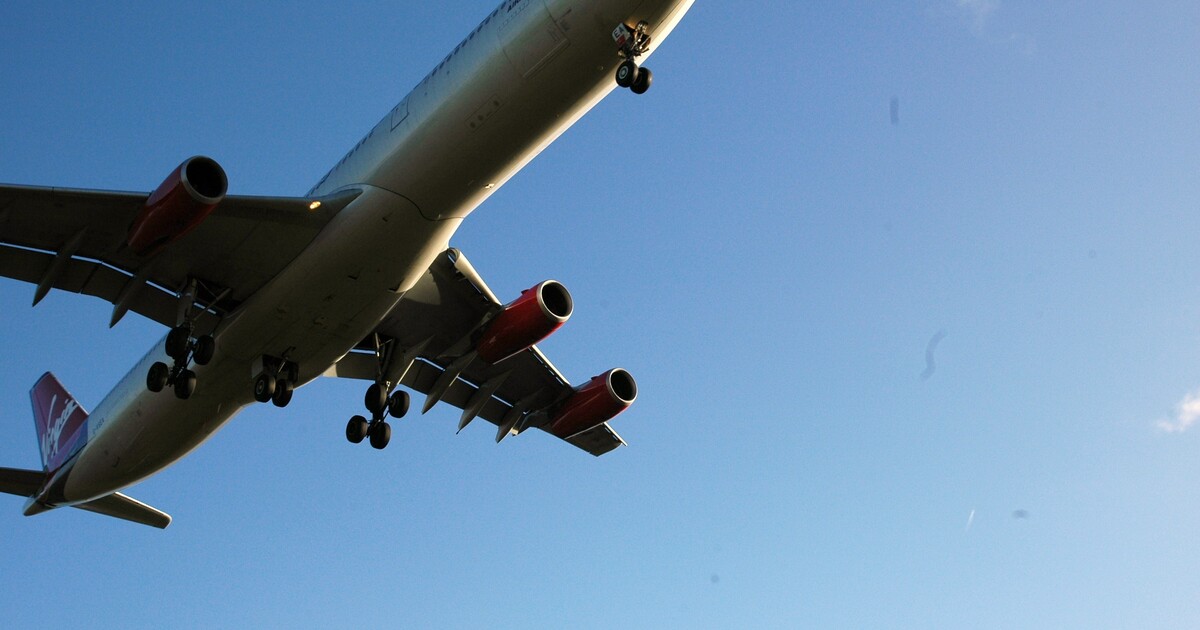Travel
UK Government must act to make trains cheaper than planes

Rail is cleaner and greener than aviation, and should always be cheaper.
The next UK Government must act quickly to ensure that train travel is cheaper than flying in a bid to cut emissions and reduce flights, say the Scottish Greens.
The party is calling for the next government to use taxation on aviation, including a frequent flyer levy, to subsidise rail tickets on the most popular air routes.
It is part of a package of measures included in the party’s manifesto to reduce aviation, including the removal of tax breaks on aviation fuel and a £1000 per head tax on all private users landing in the UK.
Lorna Slater, Co-Leader of the Scottish Greens, said: “As a matter of principle, taking the train should always be cheaper than flying.
“Traveling by rail in the UK is far more expensive than in many other countries, so it is no wonder that so many are choosing to fly. We badly need to turn that around. It is ridiculous that people who use the train are being punished for making cleaner and greener choices.
“The next UK Government must take urgent action to make it easier and cheaper to do the right thing. That means using taxes from aviation to cut the price of trains and increase the number of direct rail connections between cities across the UK.
“The Scottish Greens are committed to fair fares. That is why we removed peak rail fares in Scotland and why we have called for the same benefit to be extended across the UK.
“We also need to end the tax reliefs on aviation and ensure it is taxed in a way that reflects the enormous impact it has on our climate.
“Half of all aviation emissions come from just 1% of the world population. That’s why the Scottish Greens are also proposing a frequent flyer levy and a private jet tax. It is about targeting those who are doing the most damage.
“As well as encouraging responsible travel, the income raised can be used to bring down rail fares, and invest in expanding and improving our rail network.”
Analysis has shown that trains between Edinburgh and London are on average 60% more expensive than flying. Edinburgh to London is the second-busiest flight route in Europe that has a train alternative.
These proposals would not impact lifeline flights for island communities.
From the Scottish Greens manifesto
The cost and reliability of cross-border rail services in the UK at present, contrasted with the cheap and readily available domestic flights by low-cost providers, means in far too many instances people are unable to choose the low-carbon option. We need to make rail travel between Scotland, England and Wales the default option. The Scottish Greens would:
-
Renationalise the West Coast Main Line, and commit to making both East and West coast services permanently operated by public sector operators, reinvesting profits into service improvements, decarbonisation, and affordability.
-
Make rail cheaper than flying, using taxation on aviation to subsidise rail tickets on the most popular air routes.
-
Increase the number of direct rail connections between English and Scottish cities, to reduce the demand for domestic flights.
Action on aviation emissions is urgent. The Scottish Greens would:
-
Implement a Frequent Flyer Levy, targeting the 1% of people who cause 50% of global aviation emissions. This levy would add additional costs to those who fly multiple times within a year, whilst making exceptions for those in remote areas who are using lifeline services.
-
Follow France’s lead and ban short-haul flights where journeys can instead be taken on fast and affordable trains.
-
Introduce a new tax on private jets using UK airports, driving down demand for these wasteful flights, which have seen a 31% increase in emissions since 2005.
-
Remove the tax breaks on aviation fuel, which have contributed to air travel being one of the lowest taxed forms of transport, despite its significant environmental costs.
-
Reform the Airspace Change Process, governed by the Civil Aviation Authority, so that increased demand for domestic and short-haul flights is no longer a justification for new flight paths.






